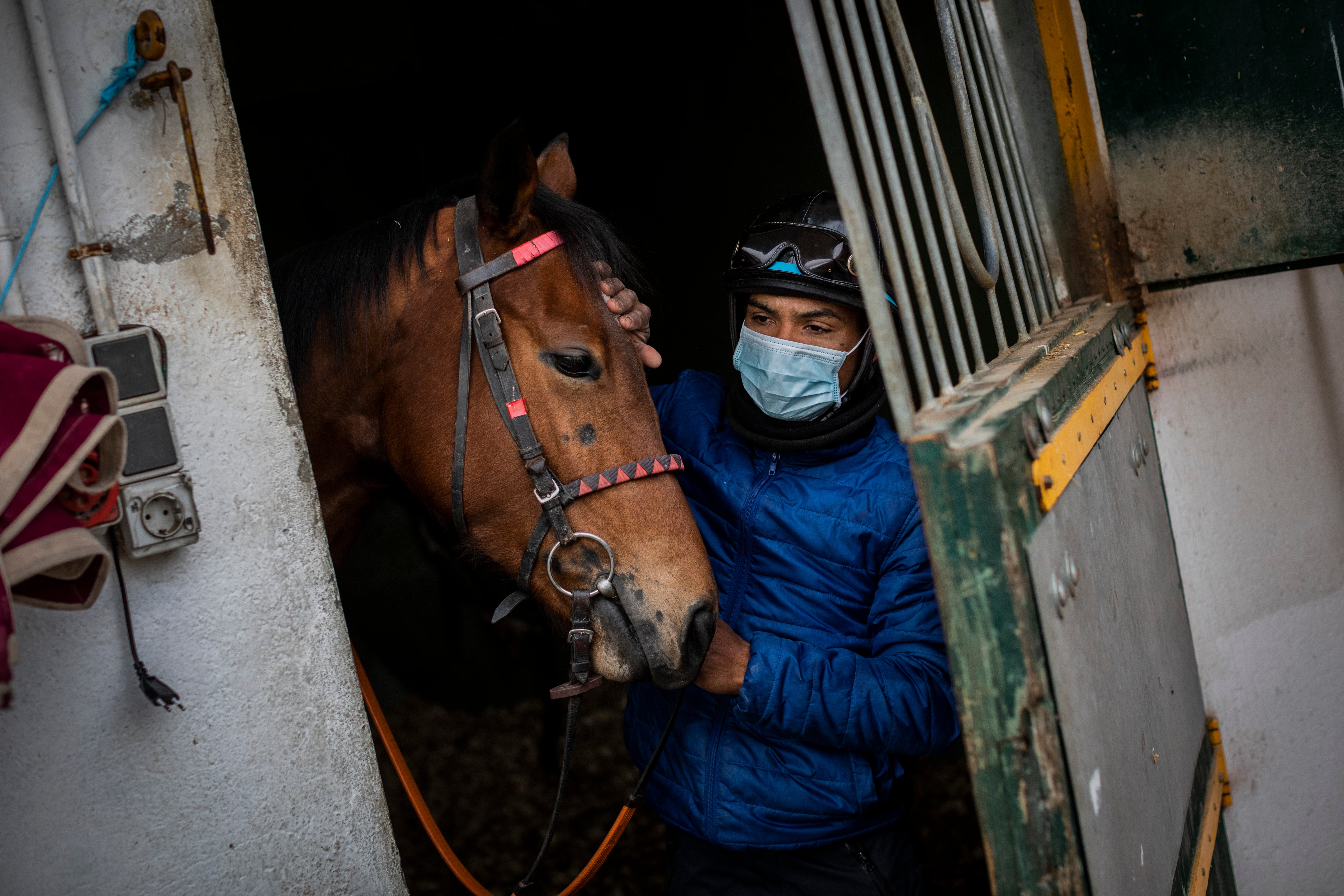AP PHOTOS: Madrid racetrack bets on riding out of pandemic
The pandemic may have altered many habits, but horse racing at Madrid's Zarzuela Racecourse has changed has changed little

A man slips a piece of paper with the name Sophie Linda on it under the teller’s window. The young woman on the other side inspects the paper and disinfects a wad of cash before passing the money to the lucky gambler.
It’s the end of the day at Madrid´s Zarzuela Racecourse, time for the horses to be stabled and for jockeys to put away their whips, harnesses, boots and other gear.
The pandemic may have altered many habits, but racing at the Spanish track has changed little.
“Fortunately, we have a lot of space,” said Guillermo Arizkorreta, a racehorse trainer with plenty of winning experience.
Like other activities, races at Zarzuela ceased when the government imposed a nationwide lockdown during Spain's first coronavirus outbreak in March.
After most blanket restrictions were lifted in May, the racecourse implemented infection-control procedures in keeping with the country's so-called “new normality." Adhesive tape marks out spaces in the stands to ensure the reduced number of spectators allowed in maintain the proper distance from each other. Masks are required, jockeys undergo tests for the virus, and the money handed in as bets and out as winnings gets sprayed down to remove germs.
In this way, Spain's horse racing industry has managed to stay afloat even though 2020 has proven disastrous for the country's economy in general, with tourism and hospitality among the sectors suffering badly.
“We’ve noticed a generational change" in spectators, Victoria Barderas, the head of marketing and communications at the Zarzuela course, said. "Many older people are staying at home, and younger people are coming.”
José Luis Martínez, 50, a professional jockey for the past three decades and a winner of one of the day’s races, says fewer horses are competing owing to the public health crisis. He says not being able to race during the spring lockdown diminished his eagerness to train.
“My work, my hopes, disappeared completely,” Martinez said.
The jockey says it was important to get back to racing so that the competitive spirit of horses did not wane.
In the world of horse racing, as in many areas of life, “those at the bottom always suffer more than those above them," he said. "But we have to go on.”
Bookmark popover
Removed from bookmarks